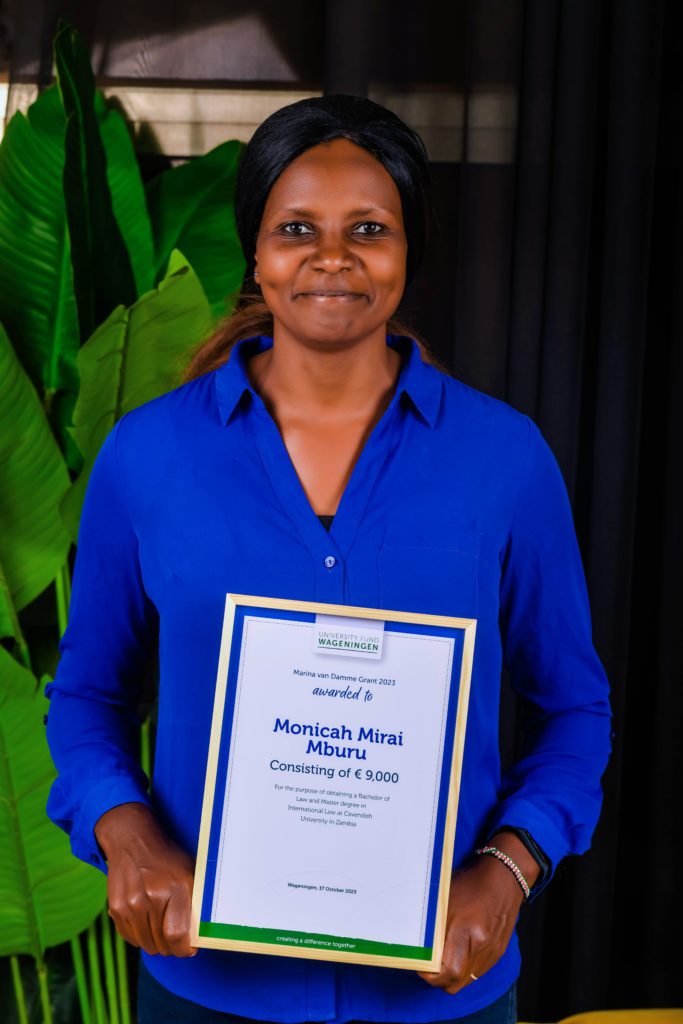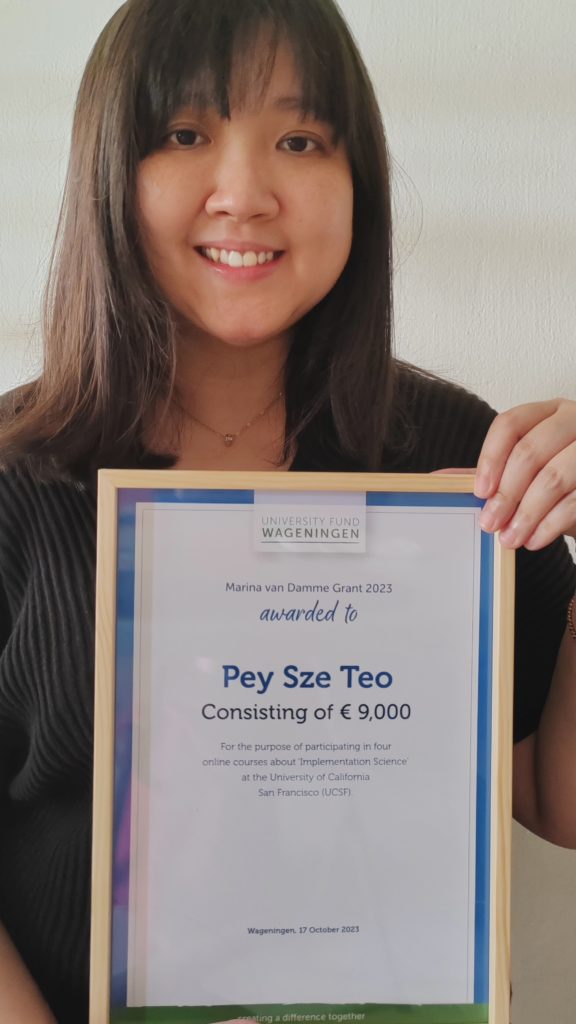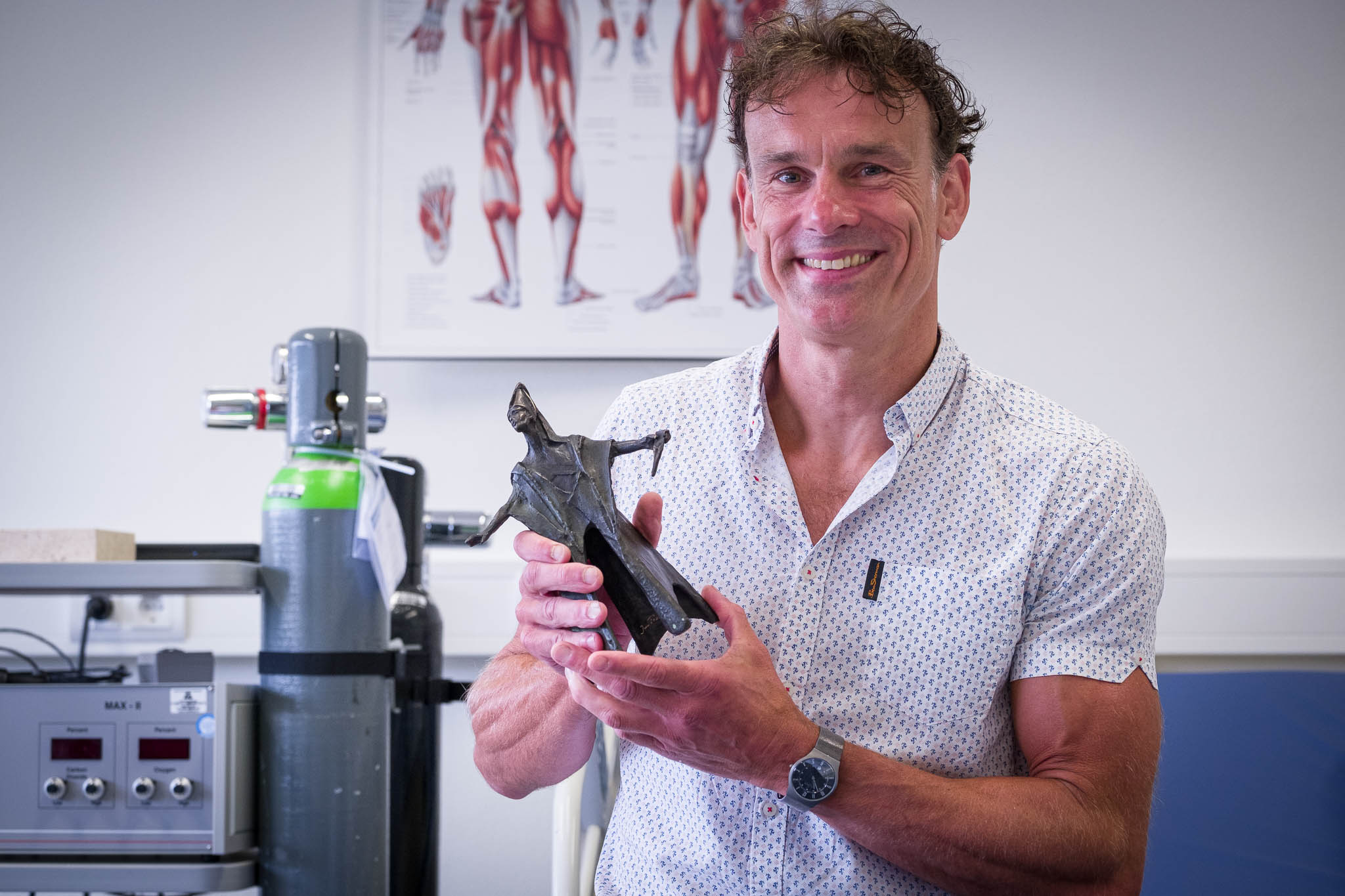University Fund Wageningen has awarded the Marina van Damme grant to not one but two female WUR alumni this year. They received a sum of 9,000 euros to spend on a course or internship.
Marina van Damme, who studied in Delft, created the fund to stimulate the elevation of women with technical degrees into higher positions. The three other technical universities in the Netherlands also have a Marina van Damme Fund. The fund was first awarded to WUR alumni in 2018.
This year’s winners, Monicah Mburu from Zambia and Pey Sze Teo from Singapore, embarked on a PhD programme at WUR about a decade ago and have since returned to their region of origin. There, they work on health research.
Monicah Mburu (30)

‘I want to contribute to interventions and measures to protect people from mosquito bites and, thus, improve their lives and wellbeing. But I am aware that I lack some skills in the policymaking domain’, says Monicah Mburu.
Mburu is a former senior researcher of the Macha Research Trust, a Zambian research institute. She studied at the University of Nairobi in Kenya and worked at the International Center of Insect Physiology and Ecology prior to obtaining her doctorate in Wageningen in 2019. During her PhD research, she studied the biting behaviour of malaria mosquitoes in Malawi. ‘Most interventions against malaria mosquitoes focus on bites that occur indoors. I wanted to know whether mosquitoes also bite in the outdoors’, she says.
‘We discovered that mosquitoes bite both indoors and out, but there are no proven methods to protect people from mosquito bites outside. We proposed methods that can protect people outdoors.’ These proposed methods were received with enthusiasm by the Malawi national malaria programme, among others.
Mburu aims to delve deeper into the domain of policymaking. ‘I want to learn how to formulate, develop and implement health policies when methods are not quite evidence-based and effective but contribute to health and better protection against diseases. The grant will enable me to follow courses that will help me advance in my daily work.’
Pey Sze Teo (37)

‘Knowledge of eating behaviour can potentially lead to real changes in said behaviour’, says Pey Sze Teo. ‘My ultimate goal is to use science to improve health.’
After Teo obtained her doctorate degree at WUR in 2018 on a study characterising and comparing the Dutch and Malaysian dietary patterns for taste, she accepted a position at the Agency for Science, Technology and Research (A*STAR) in Singapore to conduct further research on eating behaviour. ‘I am currently a senior research fellow at the Clinical Nutrition Research Center of the A*STAR’s Singapore Institute of Food and Biotechnology Innovation.’
‘My team studies how we can use sensory information in food to alter consumers’ choices and, in doing so, influence their eating behaviour. Thus, we aim to develop strategies to improve eating behaviour and, as a result, health.’
But changing behaviour is no easy task, Teo discovered. ‘I want to delve deeper into the science of implementation and follow courses in that domain. With a sufficient level of theoretical understanding, we should be able to translate our experiments into practice and implement the methods in people’s day-to-day lives. And if that proves successful, we can see whether it can also be applied to specific demographics such as the elderly, children or patients. That is my ultimate goal.’
Teo feels that her ‘adventure’ started in Wageningen. ‘I recall taking a picture at the bus station in Wageningen when I first arrived. Now, my adventure continues with help from Wageningen. I still consider myself part of WUR, even as an alumnus. I Am very grateful to Ms. Van Damme.’

 Monicah Mburu conducts research on outdoor protection from malaria mosquitoes. Photo Shutterstock
Monicah Mburu conducts research on outdoor protection from malaria mosquitoes. Photo Shutterstock 

